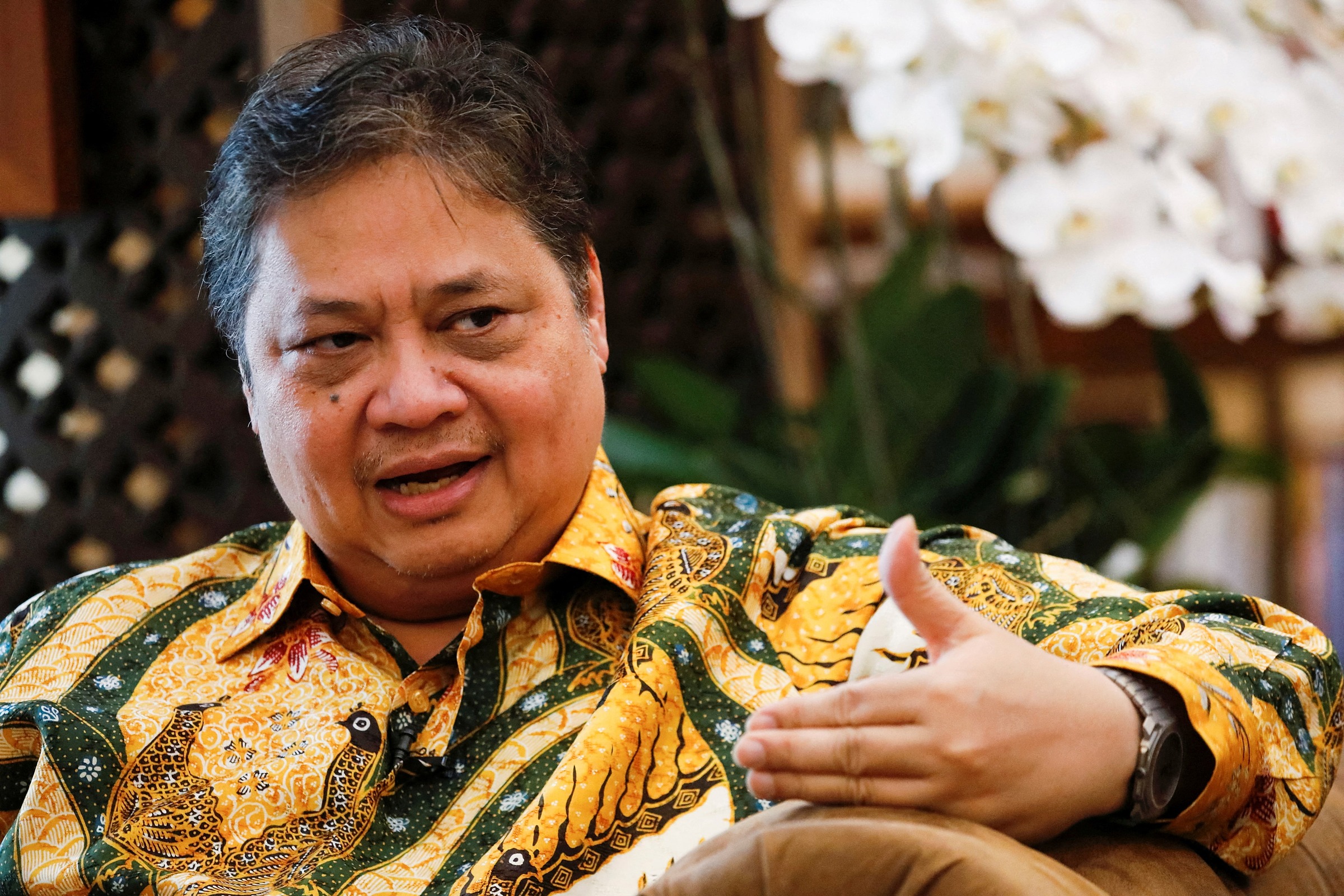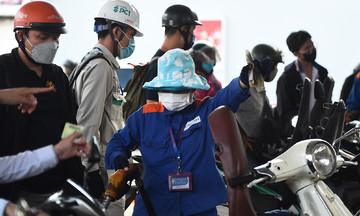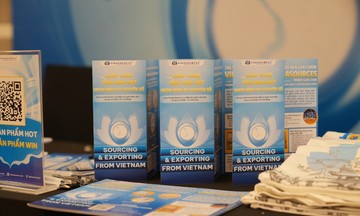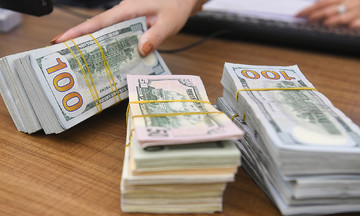Key US exports to Indonesia include soybeans, liquefied natural gas, and aircraft, which currently face tariffs of 0-5%, according to Indonesian government data.
"The tariffs will be close to 0% for key US export items, but it also depends on how much the US reduces tariffs for us," Indonesian Coordinating Minister for Economic Affairs Airlangga Hartarto, who is also the lead negotiator with the US, said on 4/7.
He also confirmed that the state-owned airline Garuda Indonesia will purchase additional Boeing aircraft. Garuda’s CEO said they are in discussions with Boeing to buy 75 more planes.
 |
Indonesian Coordinating Minister for Economic Affairs Airlangga Hartarto. Photo: Reuters |
Indonesian Coordinating Minister for Economic Affairs Airlangga Hartarto. Photo: Reuters
Franciscus Welirang, chairman of the Indonesian Wheat Flour Mills Association, revealed that "members will purchase 2 million tons of wheat through competitive bidding." He affirmed that "all members will purchase US wheat." US companies involved in the wheat agreement include major corporations such as Cargill, Bunge Global, Pacificor, Archer-Daniels-Midland (ADM), Columbia Grain International, and United Grain Corporation.
Indonesian goods currently face 32% tariffs when entering the US market. According to the Office of the United States Trade Representative, Indonesia had a $17.9 billion goods surplus with the US in 2024.
The Southeast Asian nation has proposed increased purchases of US goods to accelerate trade negotiations between the two countries. The deadline for countries to reach an agreement with the US is 9/7. Next week, Indonesian businesses are expected to sign contracts worth $34 billion with US partners.
In return, Indonesia wants the US to reduce preferential tariffs on its key exports, such as electronics, textiles, and footwear. "We want them to lower tariffs on these items as low as possible," Susiwijono Moegiarso, a senior official at Indonesia's Coordinating Ministry for Economic Affairs, told Reuters.
Indonesia is also inviting US investment in critical mineral extraction projects, including copper, nickel, and bauxite, resources in which the country has large reserves.
Ha Thu (Reuters)












